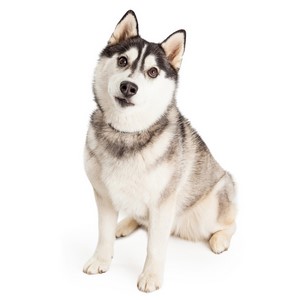Siberian Husky Traits
Thinking to adopt a Siberian Husky and need to know about the traits of a Siberian Husky Dogs to help you ensure if a Siberian Husky is easy to adapt into your household.
Siberian Husky scores  out of 5 in the scale of adaptability compared to other breeds.
out of 5 in the scale of adaptability compared to other breeds.
Siberian Husky Personality
-
Hoping to bring a dog into your home? Some pet dog breeds are easier to own than others, especially for novice dog parents.
To find the easiest pet dog breeds to own, we looked at a number of essential characteristics. And you might be shocked by the characteristics that matter most. For instance, you might think you want a smart dog. Highly intelligent dogs aren't always the easiest to train, because trainability is more about a dog's desire to follow instructions than his capacity to comprehend them.
You might believe an energetic dog will be the easiest to keep healthy. A dog with a lower energy level and no genetic predisposition to disease will actually be simpler to deal with. Plus, choosing a dog with an easygoing temperament - and minimal grooming needs - will go a very long way toward keeping you right-minded.
Ready to find the ideal dog? Look at 5 of the easiest dog breeds to own.
Top 5 Easiest Dog's To Own
2. Border Terrier - The border terrier is very "happy," "plucky," and "loving." This dog has a moderate energy level but a more laid-back personality than many other terriers.
3. Bulldog - If you want a patient and mellow canine, you can't make a mistake with the bulldog. You can successfully train your bulldog - especially if you use lots of praise and rewards and keep a sense of humor.
4. Cavalier King Charles Spaniel - They can be loyal hiking partners or shameless couch potatoes, relying on the owner's character - as long as they get a satisfying walk each day.
5. Basset Hound - These medium-sized dogs aren't very energetic. And while most dog owners won't put the basset hound's hunting prowess to the test, they'll appreciate the breed's extreme patience with children.
What to do if you lose your Siberian Husky
If your Siberian Husky Dog or any other pet has gone missing and it does not have an identification tag with a phone number, you can:
1. Report your missing pet details at Pet Reunite website here.
2. List the missing pet on the Local Lost Pets Facebook Groups Here.
3. Call the local vet clinics to see if someone has brought in your missing pet.
4. Phone the RSPCA or Visit the RSPCA Lost Pets website and complete a Lost Pet Report.
5. Visit Lost Pets Pages of Animal Shelters.
What to do if you find a lost Siberian Husky
If you find a Siberian Husky Dog or any other pet and it does not have an identification tag with a phone number, you can:
1. List the found pet details at Pet Reunite website here.
2. Report the missing pet on the Local Facebook Lost Pets Groups.
3. Contact the Local Council to collect the lost animal.
4. Take the pet to the local Animal Shelter assigned to your suburb.
5. Take the pet to the local Vet Clinic who usually scan the animal’s microchip and call the registered owner of the pet.
Laws Regarding Missing Pets
1. It is against the law to keep any animal that you find.
2. Pets are generally considered property and it is illegal to take and keep someone else’s property.
3. You must call your local animal control unit and file a FOUND AN ANIMAL report for any dog or cat you find.
4. To reclaim your lost dog, cat or other pet from the animal shelter you must pay a release fee.
5. If your dog or cat is unregistered, you will have to register your pet before you can take it home.

